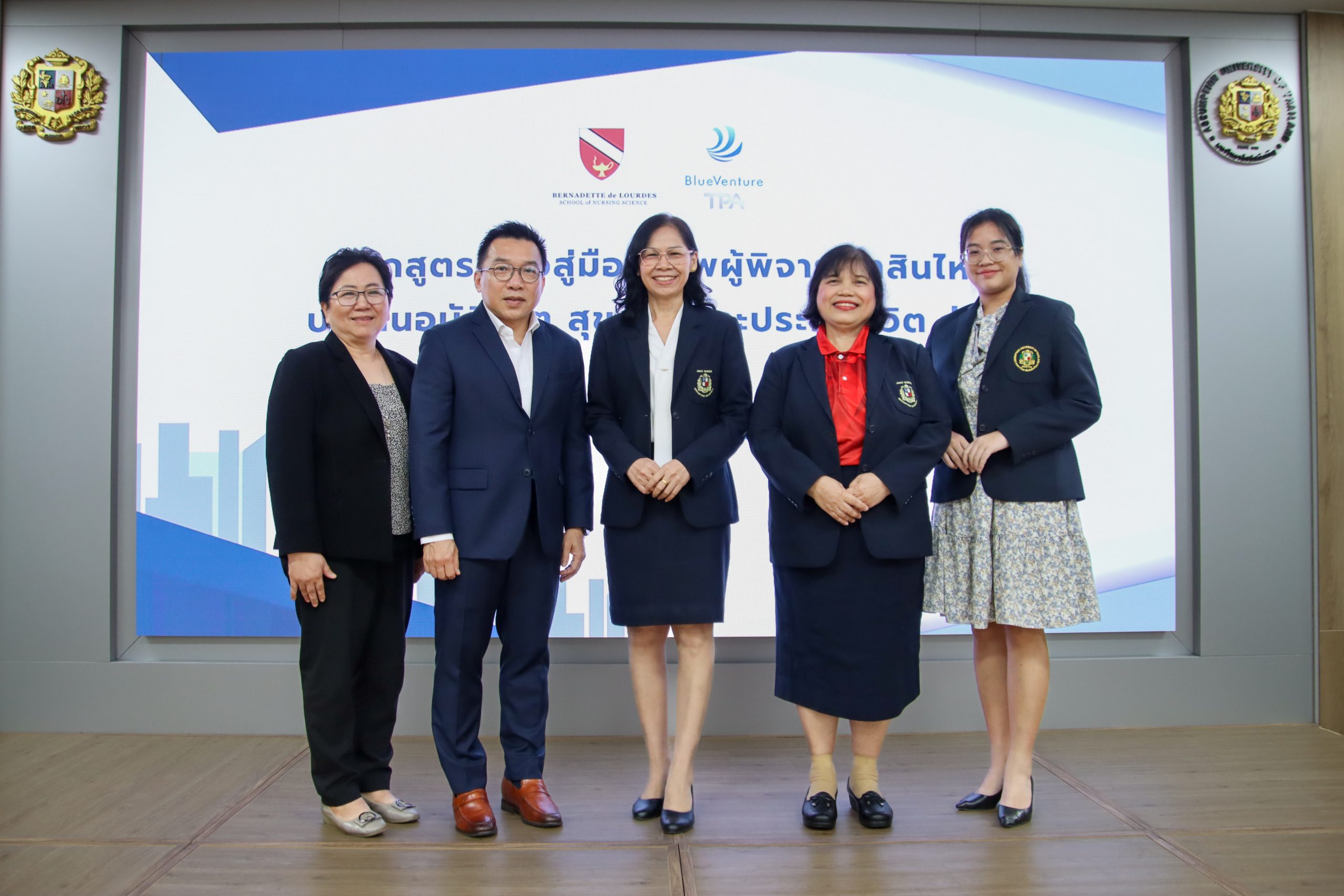BlueVenture TPA Co., Ltd., in collaboration with Thai Reinsurance PCL. (THRE) and Thaire Life Assurance PCL. (THREL), successfully hosted a seminar titled “Health Insurance Challenges: A Deep Dive into Medical Inflation in Thailand and How Singapore Tackles Rising Healthcare Costs” on November 19, 2024, at The Renaissance Bangkok Ratchaprasong Hotel.
This seminar served as a dynamic platform for industry experts to share insights on the growing issue of medical inflation in Thailand and explore practical strategies to manage rising healthcare costs. Special guests, including representatives from Singapore Life Holdings (Singlife), offered valuable perspectives on sustainable healthcare financing and cost-control measures aimed at strengthening both private insurance and public healthcare systems.
Health Insurance Trends in Thailand
Ms. Nantinee Chinwanno, Executive Vice President of Thai Reinsurance PCL., provided a comprehensive overview of the Thai health insurance market, noting:
- 2019–2023: Steady growth in health insurance premiums under life insurance.
- A surge in non-life insurance premiums during the COVID-19 pandemic (2019–2021), followed by a decline in 2022–2023.
- Excluding COVID-19 coverage, the non-life health insurance sector maintained consistent growth until a 0.4% contraction in 2023.
In the first half of 2024, health insurance premiums under life insurance grew by 11.3%, while non-life premiums decreased by 6.3%.
The Rising Impact of Medical Inflation
Dr. Suthon Chutiniyomkarn, CEO of BlueVenture TPA, highlighted the pressing challenge of medical inflation, driven by factors such as:
- The introduction of advanced medical technologies and new pharmaceuticals.
- Shortages of medical supplies.
- Growing demand for highly skilled healthcare professionals.
- Shifts in patient behavior and lifestyle-related diseases.
He revealed that the average cost of inpatient surgery in private hospitals has risen significantly:
Looking ahead, medical inflation in Thailand is projected to reach 11.3% in 2025, putting additional pressure on insurers and healthcare providers to manage costs effectively.
Singapore’s Strategy for Managing Healthcare Costs
Dr. Warren Ong, Head of Health Services at Singapore Life Holdings, shared insights into Singapore’s healthcare model:
- Healthcare spending accounts for 4.47% of GDP, with 31.17% paid out-of-pocket by individuals, reinforcing a system of shared responsibility between citizens and the government.
- Despite a robust healthcare financing system, medical costs in Singapore are projected to rise by 10–13% in 2024, with some insurance premiums expected to increase by as much as 25%.
- To address these challenges, Singapore is investing in:
- Expanding public healthcare infrastructure.
- Strengthening family medicine and preventive care.
- Developing alternative care models like home-based treatment.
- Enhancing collaboration through public-private partnerships.
Source: https://www.blueventuretpa.com




